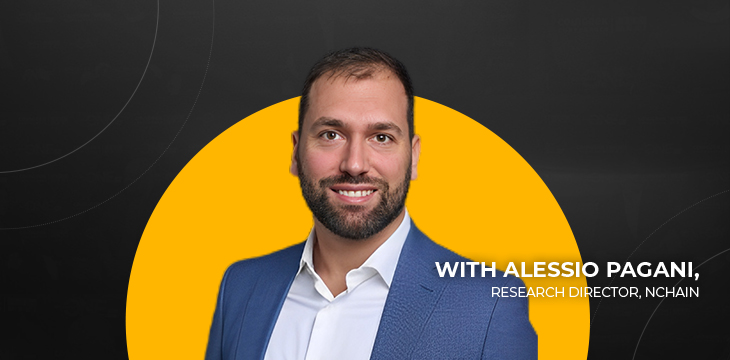The era of a decentralized Internet in which users own and control their data is upon us, but it’s only possible when it’s underpinned by blockchain and artificial intelligence (AI), says nChain Research Director Alessio Pagani.
width=”560″ height=”315″ frameborder=”0″ allowfullscreen=”allowfullscreen”>
“My job is to combine blockchain with other emerging technologies. [I look into] all those things that can be used to improve or combine blockchain with other technologies and design useful use cases,” Pagani told CoinGeek Backstage reporter Becky Liggero at the London Blockchain Conference 2024.
While there are several emerging technologies that blockchain is integrating with, none has been more impactful than artificial intelligence (AI). The two technologies have a mutually beneficial relationship; while AI gets blockchain’s data verification and transparency, it aids in its security, scaling and automation.
“We need to trust AI. Right now, AI models are not auditable or transparent. We are doing a lot of research on making a layer of transparency to AI’s data sets so that you can prove that the actions taken by those agents are fair and ethical,” Pagani noted.
Trust in AI has been elusive. Nearly all leading AI models, from Google’s (NASDAQ: GOOGL) Gemini to OpenAI’s GPT operate in a black box model that its users can’t access to understand how they were trained, the data used or how they make their decisions.
Some experts argue that this could have catastrophic consequences. With no visibility into their operations, AI models could become the ultimate “ends-justify-the-means devices,” one legal expert who has been fighting Microsoft (NASDAQ: MSFT), Google and OpenAI in court notes.
He worries that black-box AI could lead to ‘human-behavior laundering,’ in which we delegate tough and consequential decisions to AI models because they can’t be held accountable.
Blockchain’s transparency can finally offer the much-needed trust that AI desperately needs.
Pagani added that the fusion of AI and blockchain is the foundation of Web3, the Internet iteration that puts users in full control.
“Web2 doesn’t work. There’s too much centralization. Moving to Web3 means removing all those barriers and creating the new version of the internet that’s decentralized and intelligent,” he said.
In order for artificial intelligence (AI) to work right within the law and thrive in the face of growing challenges, it needs to integrate an enterprise blockchain system that ensures data input quality and ownership—allowing it to keep data safe while also guaranteeing the immutability of data. Check out CoinGeek’s coverage on this emerging tech to learn more why Enterprise blockchain will be the backbone of AI.
Watch: Why identity is important as we move to Web3
width=”560″ height=”315″ frameborder=”0″ allowfullscreen=”allowfullscreen”>
New to blockchain? Check out CoinGeek’s Blockchain for Beginners section, the ultimate resource guide to learn more about blockchain technology.
This news is republished from another source. You can check the original article here







